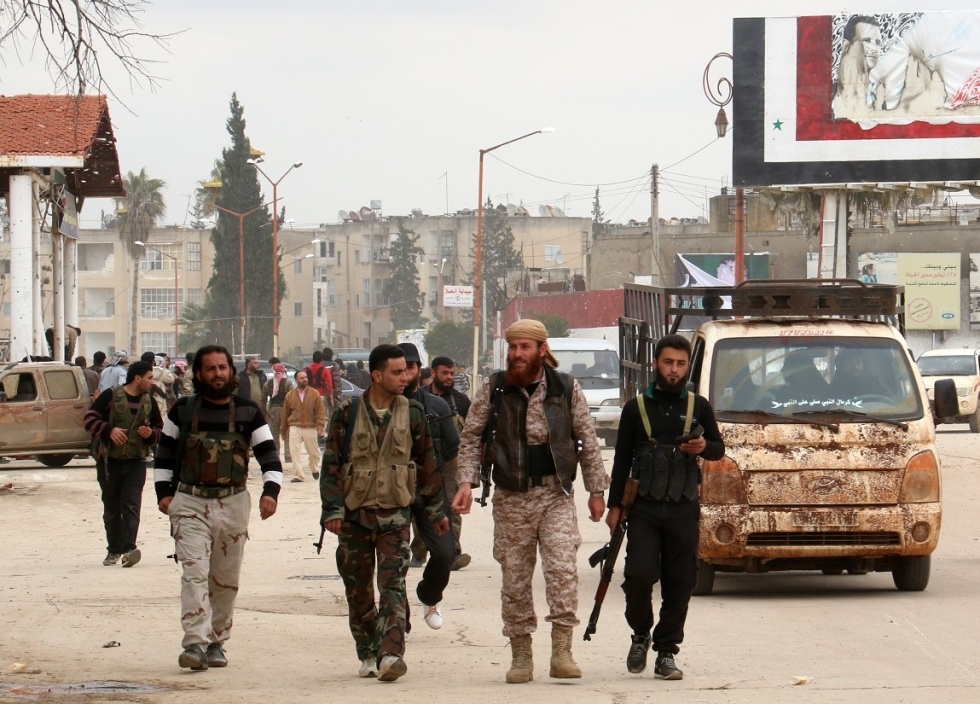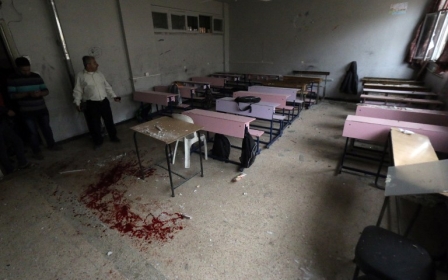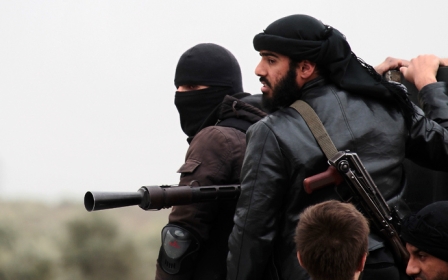Evidence suggests chemical attacks used by Syrian government on Idlib

Eyewitness accounts and evidence collected from northwestern Syria “strongly” suggest government forces dropped toxic chemicals on civilians several times last month, Human Rights Watch said on Tuesday.
The New York-based rights group said the chemicals appeared to have been packed into crude explosives-filled barrels that were dropped by military helicopter on rebel-held areas during heavy fighting for the city of Idlib.
“Evidence strongly suggests that Syrian government forces used toxic chemicals in several barrel bomb attacks in Idlib governorate between March 16 and 31, 2015,” HRW said.
It called on the UN Security Council to investigate what would be a breach of both its own resolutions and Damascus’s obligations under the Chemical Weapons Convention.
HRW said it had investigated six reported attacks in Idlib and villages outside, collecting evidence from rescue workers and other civilians that provided a compelling case in three of them.
The most conclusive evidence came from a 16 March attack on the village of Sarmin, which left a family of six, including three children, dead, and an attack on Idlib city on 31 March.
“The children were foaming at the mouth, they were suffocating, then their hearts stopped,” said Leith Fares, a rescue worker in Sarmin.
HRW said it could not conclusively establish the chemical used but volunteers from the Syrian Civil Defence said they found remnants of barrel bombs at attack sites and smelled chlorine gas on victims’ clothes.
The world’s chemical weapons watchdog already expressed “serious concern” on 25 March over the reported use of toxic agents in Idlib province.
In January, it reported the use of chlorine gas in three attacks on three Syria villages last year.
The Organisation for the Prohibition of Chemical Weapons did not attribute responsibility for those attacks, although its report cited witnesses saying they heard helicopters, which only the government possesses.
In early March, the UN Security Council adopted a US-drafted resolution condemning the use of chlorine in Syria and threatening sanctions if the chemicals were used again.
“The Syrian government appears to be thumbing its nose at the Security Council and international law yet again,” HRW’s deputy Middle East director Nadim Houry said.
Damascus did not have to declare its stocks of chlorine under a 2013 agreement to dismantle its chemical arsenal as it is widely used for commercial and domestic purposes.
But use of the gas for military purposes would be a breach of its undertakings under the Chemical Weapons Convention, which it signed as part of the deal.
New MEE newsletter: Jerusalem Dispatch
Sign up to get the latest insights and analysis on Israel-Palestine, alongside Turkey Unpacked and other MEE newsletters
Middle East Eye delivers independent and unrivalled coverage and analysis of the Middle East, North Africa and beyond. To learn more about republishing this content and the associated fees, please fill out this form. More about MEE can be found here.




